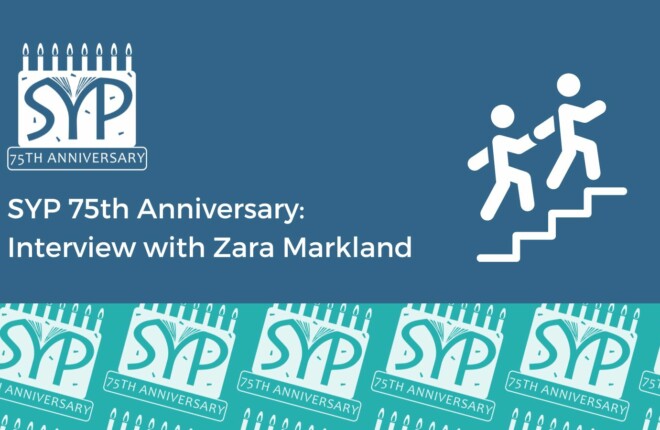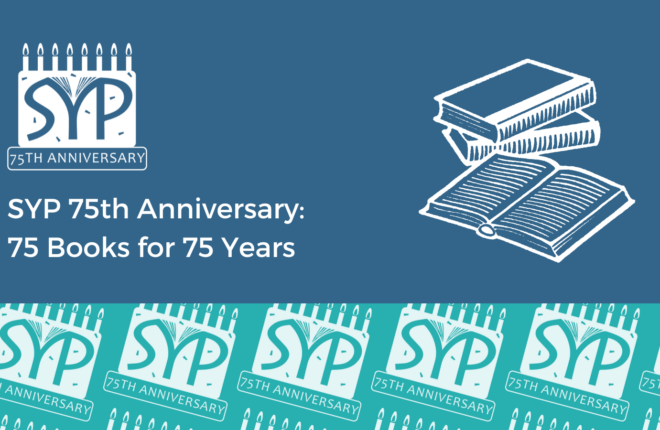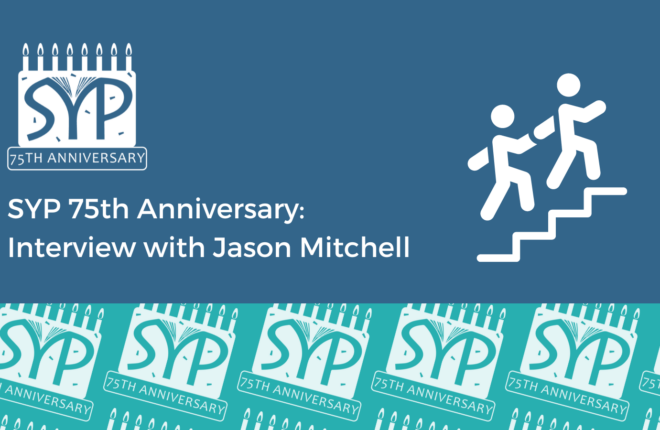
SYP 75th Anniversary: A Look Into the Evolving Industry with our Alumni
Posted on July 22, 2024 in 75th Anniversary

As the Society of Young Publisher’s reaches its 75th year, we asked our alumni to give us some insight into how the publishing industry is changing. As with any industry, publishing has completely transformed over the past two decades, in both good and bad ways, and there’s still a long way to go.
The primary difference between publishing now and publishing 20 years ago, is the digital takeover. There has been increasing worry over what this might mean for the publishing industry and those who work in it, but, notes Rachael Hobbs, a freelance marketing consultant for publishing and education, it’s not all bad: “The digital transformation has been huge, in terms of the products developed, the way they are sold, and the tools of work used on a day to day basis. When I first started in educational publishing, if there was any digital component at all it was a tacked on CD-ROM, and now in many cases we are selling digital first. It’s opened up opportunities to solve customer problems and to understand how products are used (or more problematically, aren’t used).” It’s also opened up a lot of questions, she says: “How do you reach the market when you don’t need a physical bookshop? How should we price it when the expectations are that online is free? Should we update the content more regularly? And what can we put on our exhibition stand?”
The rise in digital reliance has also changed the way workplaces function, says Cathy Atkinson, Publisher in the Education division at OUP: “We used to have a lot more paper in the office than there is the currently! There’s also been a big move to using more freelancers and packagers, with smaller in-house teams – largely driven by a drive for cost-savings.”
Another interesting change noted by Matthew Flynn, Business Manager for Rethink Press, is the conglomeration across the industry. “My first job was working on textbooks, monographs and journals in academic STM publishing. When I started there were around 15 companies in the UK in this sector. In the intervening years there were lots of mergers and acquisitions and now there are perhaps 5”
“Trade publishing has seen similar conglomeration with Penguin Random House now owning something like 200 imprints – many of which used to be separate companies. It has also meant the demise of some iconic imprints”, he adds.
There are a lot of changes still to come in the industry, however, and we asked our alumni what they would like to see from the industry in the future.
Publishing has always been and continues to be a difficult industry to break into. One of the main factors contributing to this inaccessibility is the fact that publishing jobs are often underpaid. As Matthew Flynn puts it, “Publishing has never been a particularly well-paid industry and this has lead to some exploitation of junior staff. It has also meant there are some barriers to entering the industry… Moving publishing out of London would be a big help. There’s really no reason why publishing has to be so London centric as an industry.”
For Rachael Hobbs, “There is still a way to go for some of the big companies to transform digitally and meet consumer expectations in the way some of the more nimble educational start-ups can.”
Inclusivity and representation, of course, is a big focus for the future of publishing. “The materials we publish have become much more diverse and inclusive in recent years, but internally the industry is still woefully behind on this – we need the salaries, career paths and progression in place to attract and retain a wider range of candidates”, says Cathy Atkinson.
Finally, we asked our alumni what advice they would give to those trying to break into the industry. Matthew Flynn told us, “Don’t be swayed by the perceived glamour of the industry. Most of the 180,000 books published each year are produced and sold almost in secret. The books that make the media headlines, bestseller lists, TV shows etc make up less than 1% of the industry output and your career is most likely going to be spent working on the other 99%.”
From Rachael Hobbs, “When I studied publishing at university it was because I loved books and reading, and so while I didn’t envisage educational publishing as my sector, I am always glad I landed here. It’s incredibly rewarding to work on products that help people learn, with good people that care about what they do.”
Cathy Atkinson tells us, “Know your worth, keep developing your skills, and don’t be shy to volunteer to take on more and show-case your talents.”
Thank you to Matthew Flynn, Rachael Hobbs, and Cathy Atkinson for contributing to this article.



 Listen to the podcast
Listen to the podcast  Explore the Youtube channel
Explore the Youtube channel